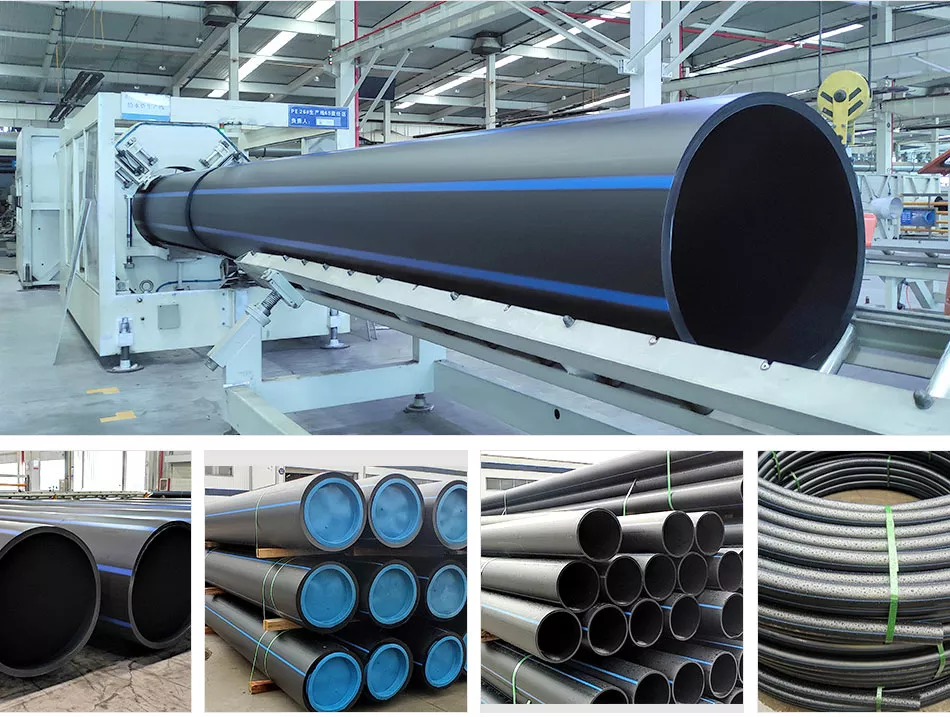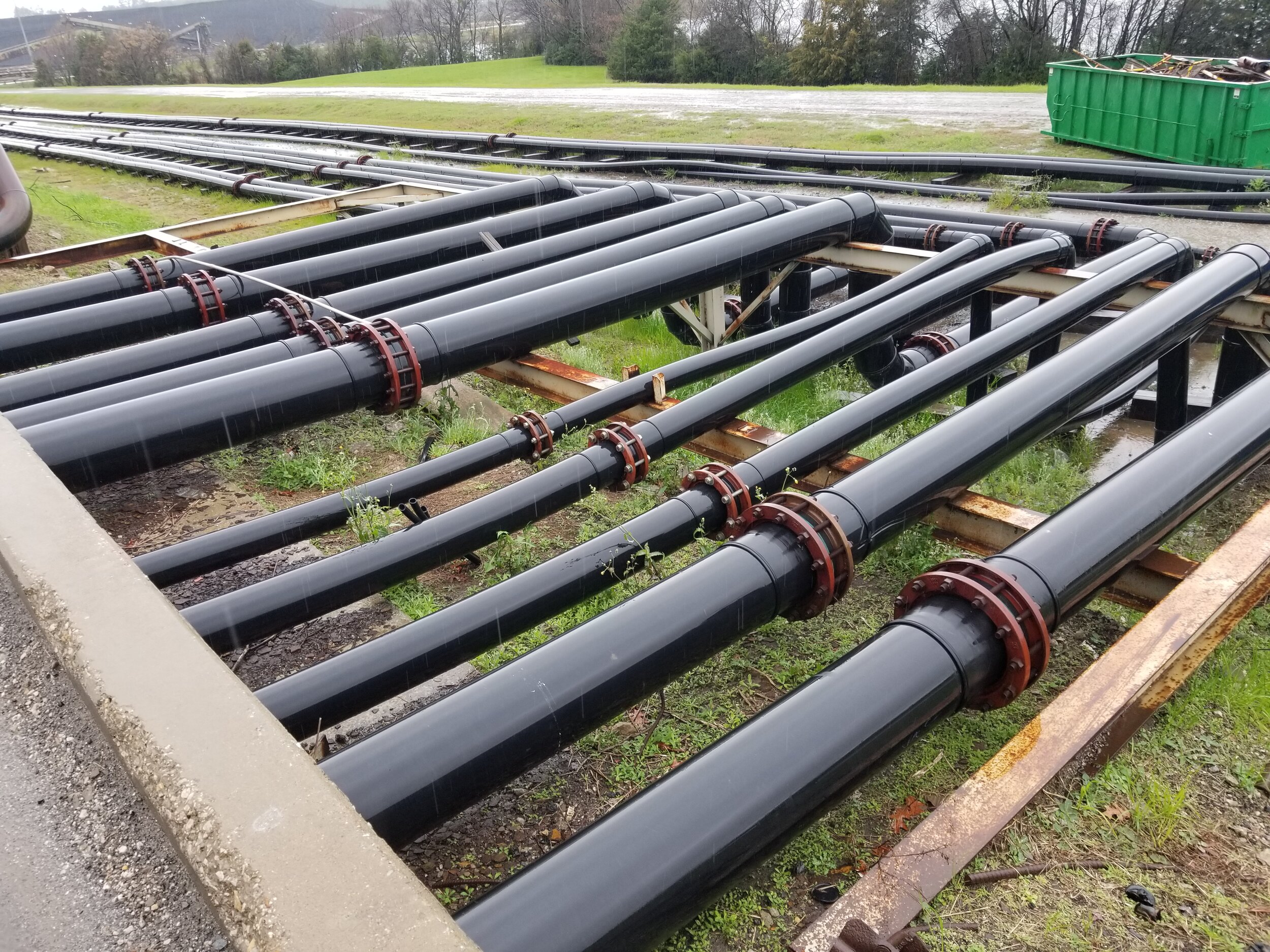A Comprehensive Guide to the Different Uses HDPE Pipeline in Building And Construction and Sector
HDPE pipelines have become a critical element in modern-day building and construction and commercial applications. Their one-of-a-kind residential properties, such as resistance to deterioration and light-weight layout, make them ideal for a variety of usages. From water systems to farming watering, HDPE pipelines use options that improve effectiveness and sustainability. Understanding their diverse applications is important for professionals looking to maximize framework. What certain advantages do these pipes offer each market?
Water and Circulation Systems
Water supply and circulation systems are important elements of urban framework, commonly depending on high-density polyethylene (HDPE) pipelines for their durability and performance. These systems transport safe and clean water from therapy facilities to customers, making sure ease of access and safety and security. HDPE pipes are favored for their resistance to deterioration, chemicals, and extreme temperature levels, which improves their longevity and minimizes maintenance prices. Additionally, their light-weight nature enables less complicated setup and transportation, making them suitable for various urban and country applications.
The adaptability of HDPE pipes allows them to be mounted in tight rooms and around obstacles, lessening the need for substantial excavation (American Plastics HDPE Pipe for Oilfield). Their smooth indoor surface area reduces friction losses, enhancing water flow prices. As cities remain to expand, the need for reliable supply of water systems boosts, placing HDPE pipelines as a lasting solution for modern infrastructure jobs. Their tried and tested track document makes them a recommended selection among engineers and urban planners alike
Wastewater Management and Treatment
Efficient wastewater monitoring and therapy are important for preserving public health and wellness and ecological top quality. HDPE pipelines play an important role in this process due to their toughness, resistance to deterioration, and capacity to stand up to extreme chemicals. These pipes are typically utilized in various applications, consisting of sewer system, stormwater drainage, and wastewater treatment facilities. Their lightweight nature facilitates easier installation and transport, minimizing labor expenses and time.
In addition, HDPE pipes have a smooth indoor surface that lessens rubbing loss, advertising effective circulation prices. They are likewise less vulnerable to leakages and failings compared to typical materials, making sure that impurities are included successfully. Their flexibility enables for versatility in numerous dirt conditions, making them appropriate for varied environmental setups. As markets significantly focus on sustainable techniques, the usage of HDPE pipelines in wastewater monitoring systems lines up with goals for lowering environmental influence and improving resource healing.
Agricultural Watering Solutions
In farming setups, efficient irrigation remedies are essential for enhancing crop yields and managing water resources. HDPE (High-Density Polyethylene) pipelines play an essential duty in modern watering systems because of their toughness, adaptability, and resistance to rust. Their capability to endure high read more pressures makes them ideal for both surface area and subsurface watering applications, guaranteeing uniform water circulation throughout fields.
Farmers can make use of HDPE pipelines in drip irrigation systems, which deliver water straight to plant roots, minimizing wastage and advertising healthy and balanced growth. Additionally, these pipes are lightweight and very easy to set up, decreasing labor costs and installment time. Their long lifespan and reduced maintenance needs better boost their appeal in agricultural methods.
HDPE pipes are ecologically pleasant, as they can be recycled and do not seep damaging chemicals right into the soil. This makes them a lasting choice for farmers intending to adopt eco-friendly farming methods while taking full advantage of productivity.
Industrial Applications and Procedures
Versatility is a trademark of HDPE pipelines, making them essential in numerous commercial applications and processes. These pipelines are widely used in chemical handling industries because of their superb resistance to a wide variety of harsh substances. HDPE's lightweight nature, integrated with high tensile strength, enables simple setup and lasting efficiency sought after atmospheres.
In the oil and gas market, HDPE pipelines play an important function in delivering hydrocarbons and gases, many thanks to their sturdiness and versatility - hdpe pipe fittings Midland TX. Furthermore, they are utilized in mining operations for the transportation of slurry and various other products, where typical piping systems might stop working
HDPE pipes are progressively used in manufacturing centers for water supply lines and wastewater monitoring. Their capacity to hold up against severe temperatures and stress makes them ideal for a range of industrial processes. On the whole, HDPE pipelines contribute substantially to performance and security across varied industrial applications.
Stormwater Management and Water Drainage Solutions
Stormwater management and drain systems are vital components in metropolitan facilities, made to handle excess rainfall and minimize flooding risks. High-density polyethylene (HDPE) pipelines are progressively utilized in these systems as a result of their sturdiness, flexibility, and resistance to rust. These pipes effectively transfer stormwater far from populated locations, minimizing surface area drainage and avoiding waterlogging.
HDPE's light-weight nature helps with much easier installation, lowering labor costs and building time. Additionally, its resistance to chemicals and environmental stress factors warranties longevity and dependability in different climates. In enhancement to standard drainage applications, HDPE pipelines are also utilized in ingenious solutions such as eco-friendly framework, which includes rain gardens and absorptive sidewalks.

Regularly Asked Questions
Exactly How Does HDPE Pipeline Contrast to PVC Pipeline in Cost?
In general, HDPE pipeline often tends to be much more costly than PVC pipeline as a result of its enhanced toughness and adaptability. Lasting price factors to consider, such as upkeep and life expectancy, may favor HDPE in particular applications.
What Is the Lifespan of HDPE Pipes Under Varying Problems?
HDPE pipelines commonly have a life-span of 50 to 100 years, relying on ecological conditions, installation practices, and use. Aspects such as temperature, soil kind, and direct exposure to chemicals can considerably influence their sturdiness.
Can HDPE Pipeline Be Recycled After Usage?
Yes, HDPE pipelines can be recycled after usage. The reusing process entails thawing down the material, permitting it to be repurposed right into brand-new items, thus promoting sustainability and lowering ecological impact related to plastic waste.
Are There Any Details Setup Challenges With HDPE Pipelines?
Installation difficulties with HDPE pipes consist of proper jointing strategies, guaranteeing adequate trench problems, and managing thermal growth. Additionally, knowledgeable labor is needed to handle specific tools, which can complicate the installment process in different atmospheres.

What Certifications Should I Look for When Investing In HDPE Water Lines?
When buying HDPE pipelines, one ought to look for qualifications such as ASTM, AASHTO, and ISO, which verify top quality and conformity with industry criteria, guaranteeing durability and efficiency in various applications. - Pipe Supplier American Plastics Midland